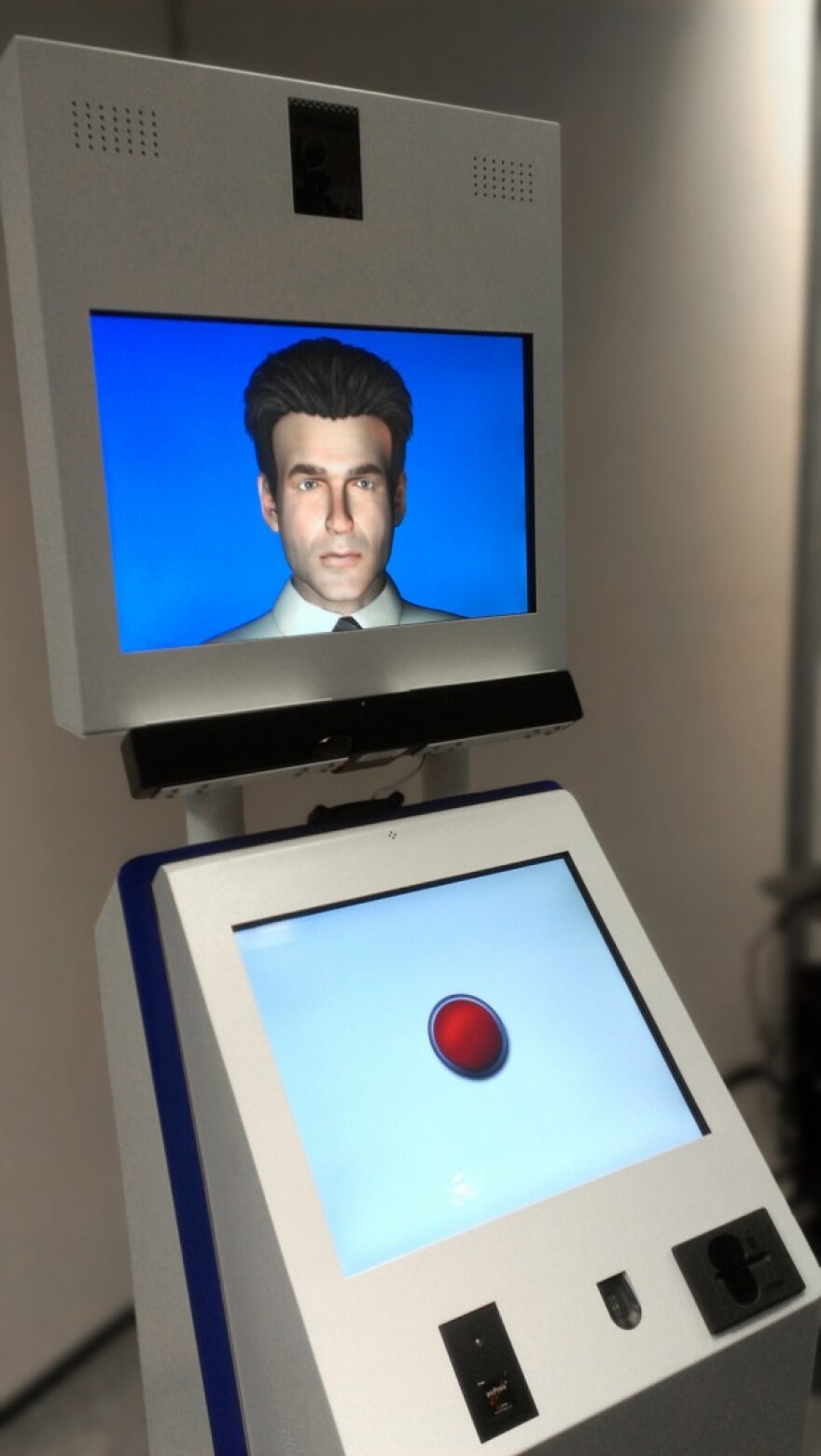In Nogales Arizona, the latest news on the US/Mexico border is… robotic.
The National Center for Border Security and Immigration has a new virtual border patrol agent.
Meet the AVATAR, or Automated Virtual Agent for Truth Assessments in Real-Time.
(Sound of AVATAR greeting: "Hello, I am AVATAR")
He’s bilingual, friendly, professional, and a computer.
His face smiles at you from a touch-screen kiosk.
Travelers who frequently cross the border can apply for something called the Trusted Travelers program.
The program allows for speedier security checks.
To get accepted a traveler has to go through a screening process that includes fingerprinting, background checks, and, an interview.
That’s where AVATAR comes in.
“I help the officers by asking some initial questions about your Century application,” says the automaton.
It can’t tell if you’re lying, but its sensors can detect behavioral and vocal changes that officers can follow-up on.
Aaron Elkins is a post-doctoral research student at University of Arizona.
He helped design the program.
“This system will give them a tremendous amount of feedback on these behavioral cues that they couldn’t detect themselves. You know, things like millimeter changes in the pupil dilation or skin temperature changes using thermal cameras,” said Elkins.
Elkins says the AVATAR is unbiased and intended to present a culture blank slate.
“We try to keep him somewhat ambiguous and that’s very difficult,” he said, “So, the language that he speaks is interpreted seems to color the way he is interpreted. When he speaks Spanish…”
(Sound of AVATAR Spanish greeting: “Hola, soy AVATAR,”)
…people seem to have no difficulty thinking, ‘Oh, he’s from Mexico, or, ‘Oh, he’s from a specific region in Mexico. And, likewise, when he speaks English.
( Sound of AVATAR: “I can respond to your questions”)
Or French or Polish. People tend to project that onto him.”
Even Elkins slips into humanizing the dark haired virtual agent.
“He’s been fairly anthropomorphized him,” he admits. “It feels a little odd and cold and strange to call it ‘it’”
But, Elkins says, the virtual officer will be objective, not Orwellian, and will help remove human error.
“If, you come up to it, it doesn’t know if you’re a man nor a woman, it doesn’t know that you may appear to be of Mexican descent or European,” said Elkins, “It doesn’t have any prejudices to speak of.”
Elkins says the the technology was developed for convenience, both for travelers and officers.
And, he imagines, border crossing is just the beginning.
“It could be used in an airport, for security,” he noted. “But it it could also be used, who knows, in a coffee shop, as a barista or as a virtual helper inn an instance where you would’ve been waiting in a long line, you could be helped immediately.”
US Customs and Border Protection is currently running AVATAR through a pilot program with 1,000 interviewees.



